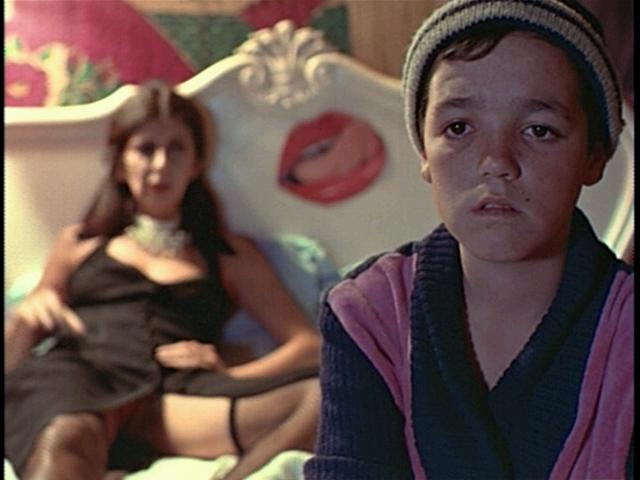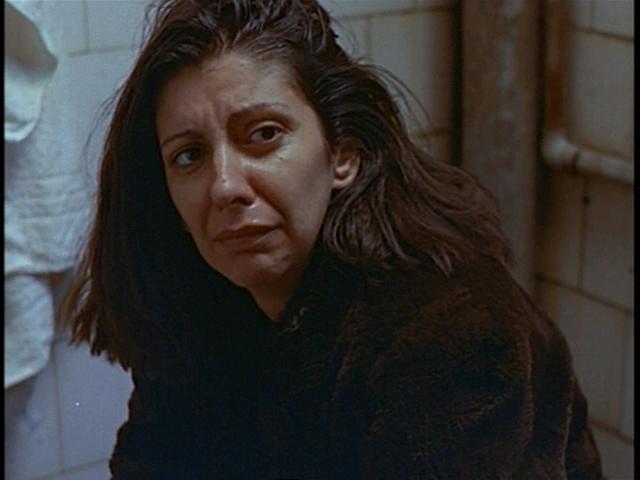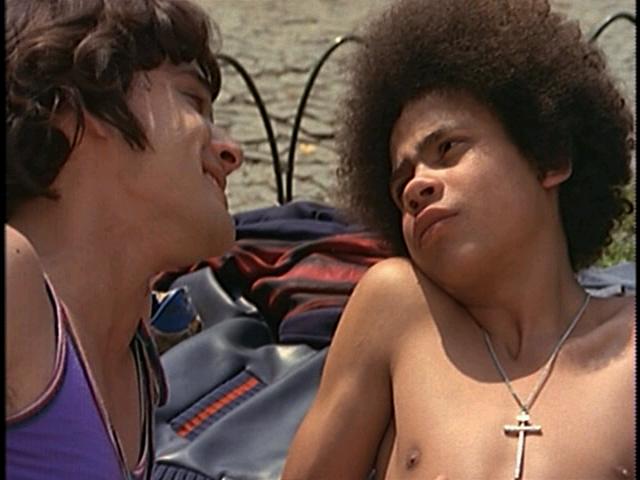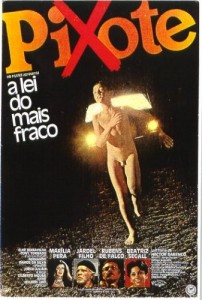|
Genres, Themes, Actors, and Directors:
- Juvenile Delinquents
- Prostitutes
- South America
Response to Peary’s Review:
Simply from reading the genres listed above, it’s clear that this “gritty, uncompromising” film isn’t for the light-of-heart. Similar in tone to City of God (2002), Pixote follows the devastating adventures of a young boy who is sent to a “reformatory” — which, naturally, does anything but “reform” him. Instead, as Peary puts it, Pixote’s “innocence is destroyed” when he is immediately subjected to a world of cruel guards, rape, drugs, and false accusations. But when Pixote and his buddies manage to escape (without much difficulty, it should be noted), life on the streets of Brazil is little better. Every comfort Pixote finds — whether sniffing glue out of a bottle, listening to music in a stolen car, or snuggling with an older prostitute — is short-lived, and ultimately just contributes to his descent down a slippery slope. Sadly, in his 2004 review, Roger Ebert writes that the illiterate Ramos da Silva returned to the streets after making this film, and was killed by police in 1987.
Redeeming Qualities and Moments:
- Ramos da Silva’s raw performance as Pixote

- Jorge Juliauo’s sensitive portrayal as the transvestite, “Lilica”

- Marilia Pera’s award-winning performance as the broken prostitute, Sueli

- An uncompromising look at adolescents banding together for survival

Must See?
Yes. This is one of the most powerful neo-realist films ever made.
Categories
Links:
|

2 thoughts on “Pixote (1981)”
I remember seeing this film in the cinema. A very powerful, disturbing film.
A must – powerful, even if (having seen it twice) it may be a once-and-done.
Director Babenco would soon go on to an interesting if short-lived career in English-language film: from the admirable ‘Kiss of the Spider Woman’, to the respectable ‘Ironweed’, to the hard-to-describe ‘At Play in the Fields of the Lord’. He then returned to making Spanish-language films, which seem to get little press.